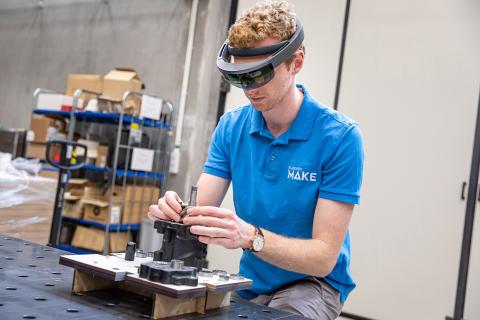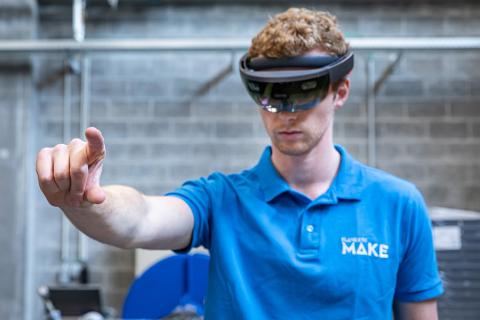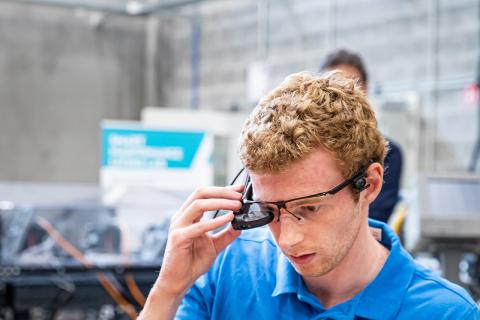Technology for remote assistance to operators
Technology for remote assistance to operators performing their tasks
Remote assistance technology enables an expert to offer remote assistance to an operator performing his or her tasks, e.g. during a training or maintenance assignment or to assist him in his work.
Role of Flanders Make?
The wearable that we use for this are Smart Glasses. These glasses allow the operator to view instructions in a hands-free way. The built-in camera films what the employee sees and shares this image with the remote expert, who can follow it on his PC or tablet. If necessary, the expert can write notes on these images, which are then shown to the operator through a display on the glasses. Built-in microphones and loudspeakers ensure that they can easily communicate with one another.
Flanders Make has further refined this technology so that we can use it for applications where physical assistance is not or difficult to achieve, for instance for safety (social distancing, hazardous environments) or accessibility (small spaces, scattered sites) reasons.
Technology for remote training and support
The COOCK project "Technology for training and remote support" fits perfectly within this support trajectory in Covid times. This project aims to inspire organisations within industry, education and the healthcare sector to implement technological solutions that allow activities to be carried out in compliance with social distancing rules.
The 'augmented/mixed reality' technologies provided make use of smart glasses, smartphones or tablets. This allows an observer to follow the actions of the executer in real time. The aim is to assist or follow the person in charge (operator, expert, pupil, teacher, patient, care worker,...). In addition to improved safety (e.g. through social distancing), these remote assistance techniques also have the following advantages:
- shorter training time;
- possibility to carry out more complex tasks;
- more efficient use of scarce experts;
- faster problem solving.
Although this technology is available and affordable, its benefits are still little known in society and its use is limited. The general aim of this project is to offer alternatives to training and assistance. Therefore, this project is not only aimed at professional users, but also at citizens such as pupils and patients. Through various channels, publications and low-threshold demonstrations will generate interest and transfer knowledge to the various sectors spread across Flanders.


